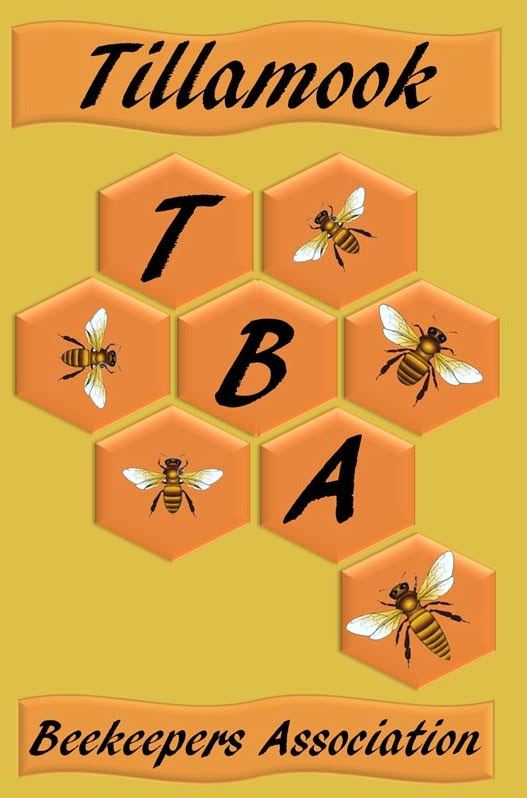Shrubs |
Honey Bees and Shrubs Shrubs and trees provide significantly more flowers for the ground space they take up as compared to annuals and perennials. In most cases they are easier to take care of and more reliable than perennials. The suggestions we have made below are all deer resistant but then if a deer is hungry that may alter the situation. In several of the pictures below we have picked out one of many, many varieties. The actual height and spread depends on the variety as do the growing instructions in some cases. Some of them will grow in part shade but usually they produce more flowers in sun and with the right soil and water. One in particular deserves a special note. Most hydrangeas are sterile and so bees will not have anything to use there. Only the oak leaf variety and the tardiva variety have both fertile and sterile flowers. A great article on hydrangeas for bees can be found at: Osmanthus (tea olive) also has many options. They bloom in late fall or early spring and are often fragrant. They differ widely in heights and widths. The one we have below can be a tree or kept as a shrub. There is one variety right next to the bicycle stand at the library. It has large, rubber tree-like leaves. Look at in November on a sunny day to see it covered with honey bees. |
 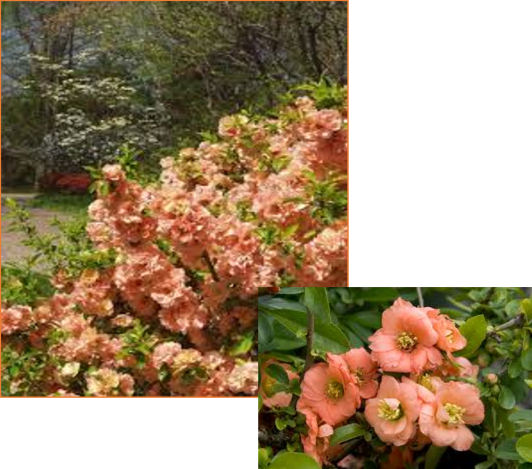 |
Quince / Gooseberry (Chaenomelesjaponica spp.) Blooms: March to April Zone: 4 to 8 Height: 3’ to 4’ depending on variety Spread: 4’ to 5’ depending on variety Sun: Full sun to part shade Water: Medium Fruit: Showy, edible Tolerates: Drought, clay Other: Thorns; prune after flowering; deer resistant |
|
Oregon Grape (Mahonia aquifolium) Blooms: March to April Zone: 5 to 8 Height: 3’ to 6’ Spread: 2’ to 5’ Sun: Part shade to full shade Water: Medium, well-drained Fruit: Dark blue-purple edible berries in late summer Other: Oregon State flower; native; deer resistant |
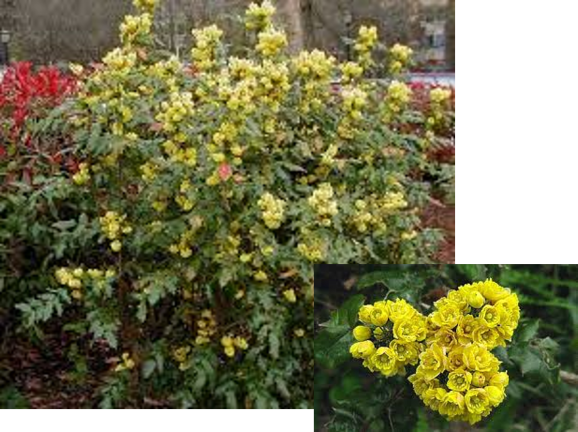 |
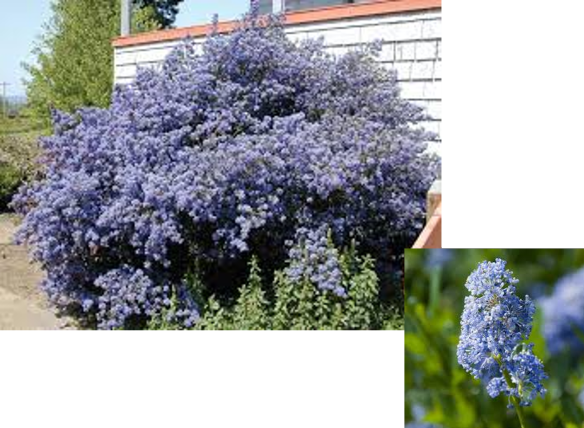 |
California Lilac (Ceanothus spp.) Blooms: Late spring Zone: 7 to 9 Height: 6’ to 9’ depending on variety Spread: 4’ to 9’ depending on variety Sun: Full sun Water: Low Tolerates: Drought once established Other: Evergreen; protect from wind; light pruning in summer; fast grower; deer resistant |
|
Russian Sage (Perovskia atriplicifolia) Blooms: Late spring and summer Zone: 5 to 10 Height: 3’ to 4’ Spread: 3’ to 4’ Sun: Full sun Water: Low Tolerates: Drought Other: Cut back to ground in early spring, deer resistant |
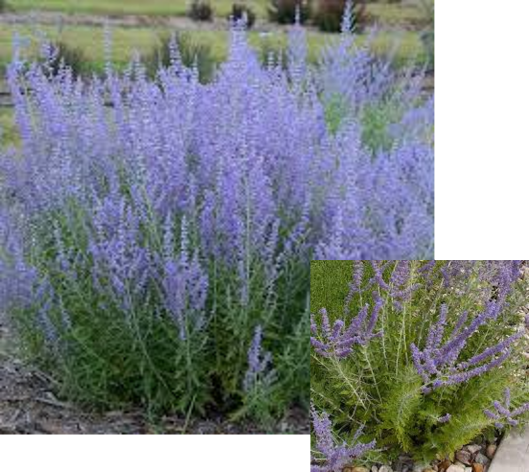 |
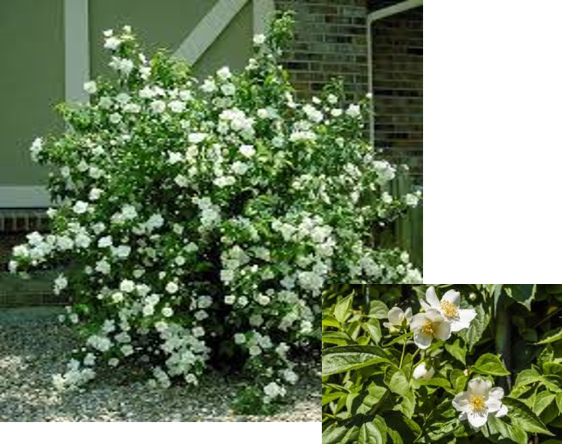 |
Mock Orange (Philadelphus lewesii) Blooms: Spring and summer Zone: 4 to 8 Height: 5’ to 12’ Spread: 6’ Sun: Full sun to part shade Water: Very low, well-drained Tolerates: Drought Other: Very fragrant; deer resistant |
|
Spirea (S. Japonica spp.) Blooms: late spring to mid summer Zone: 4 to 8 Height: 3’ depending on variety Spread: 3’ depending on variety Sun: Full sun to part shade Water: Medium Other: Easy to grow; prune in spring before new growth begins; cutting back spent flower clusters will produce a second bloom; deer resistant |
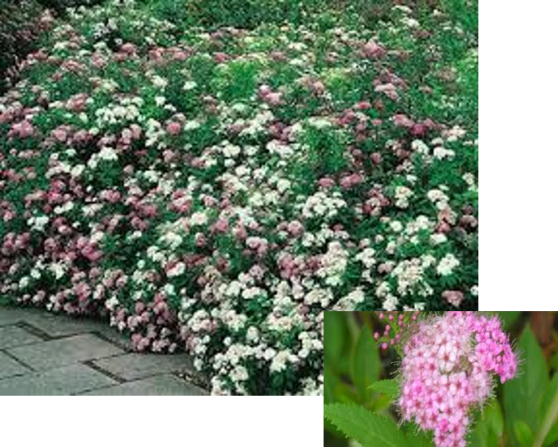 |
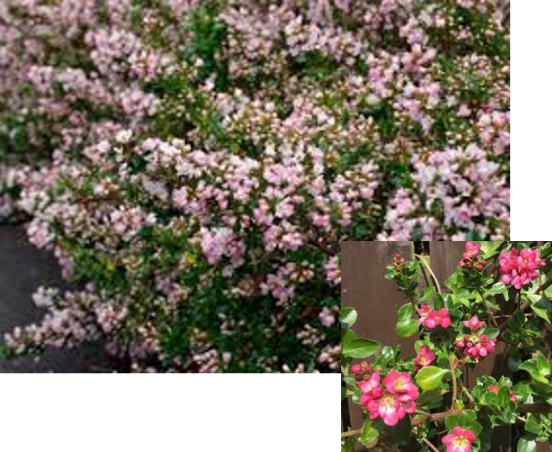 |
Escallonia (E. langleyensis spp.) Blooms: June to October Zone: 8 to 10 Height: 5’ depending on variety Spread: 5’ depending on variety Sun: Full sun Water: Medium, well drained Tolerates: Most soil types Other: Grows fast; evergreen; prune to keep compact after blooming; deer resistant |
|
Bluebeard (Caryopteris clandonensis spp.) Blooms: July to September Zone: 5 to 9 Height: 2’ to 3’ depending on variety Spread: 2’ to 3’ depending on variety Sun: Full sun Water: Medium Tolerates: Drought Other: Fragrant; flowers grow on new wood; deer resistant |
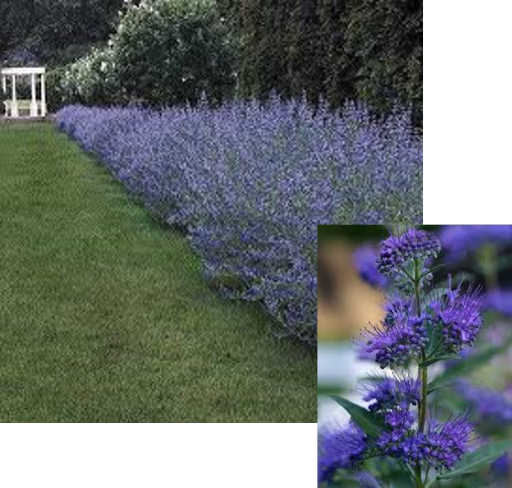 |
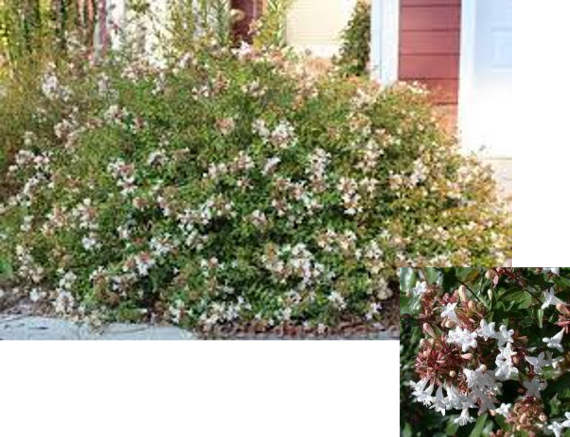 |
Abelia (A. grandiflora spp.) Blooms: May to September Zone: 6 to 9 Height: 3’ to 4’ depending on variety Spread: 3’ to 5’ depending on variety Sun: Full sun Water: Medium Other: Arching branches; quick growing; deer resistant; blooms on new wood; prune as needed; thin to ground up to 1/3 of old stems in late winter to early spring. |
|
Hydrangea Oak Leaf (H. Quercifolia spp.) Blooms: June to August Zone: 5 to 9 Height: 3’ to 4’ depending on variety Spread: 2.5’ to 3’ depending on variety Sun: Part shade Water: Medium Other: Easy to grow; blooms on old wood; mulch to retain moisture; blooms fade to pink |
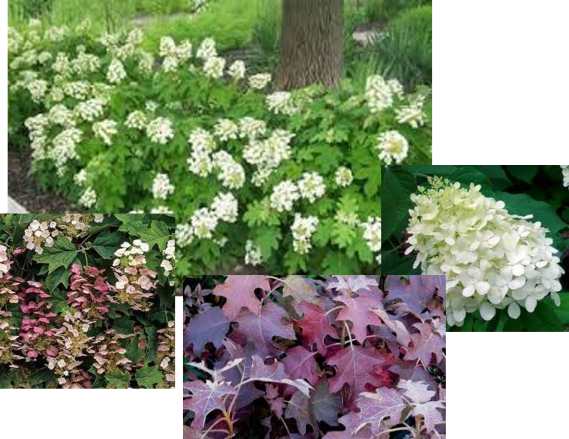 |
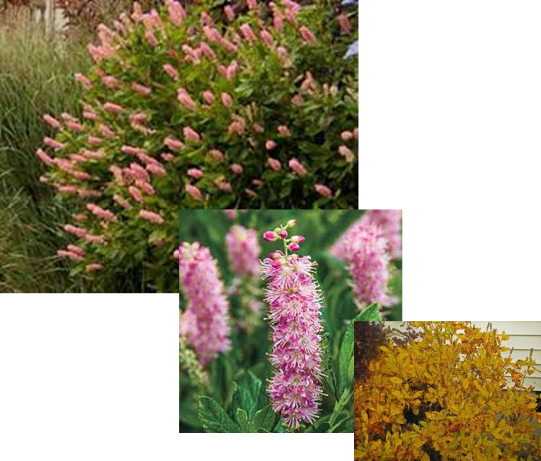 |
Summersweet (Clethra alnifolia spp.) Blooms: July and August Zone: 4 to 8 Height: 4’ to 6’ depending on variety Spread: 3’ to 5’ depending on variety Sun: Part shade Water: Medium to wet Other: Easy to grow; fragrant; deer resistant; don’t let it dry out; remove suckers unless a naturalized look is desired. |
|
Tea Olive (Osmanthus spp.) Blooms: October to December Zone: 5 to 10 Height: 16’ depending on variety Spread: 5’ depending on variety Sun: Full sun to part shade Water: Medium Tolerates: Drought after it is established Other: Large differences depending on variety. Fortunei is very fragrant up to 20’ away; columnar; deer resistant; fast growing; can be a shrub or a tree; juvenile foliage is spiny |
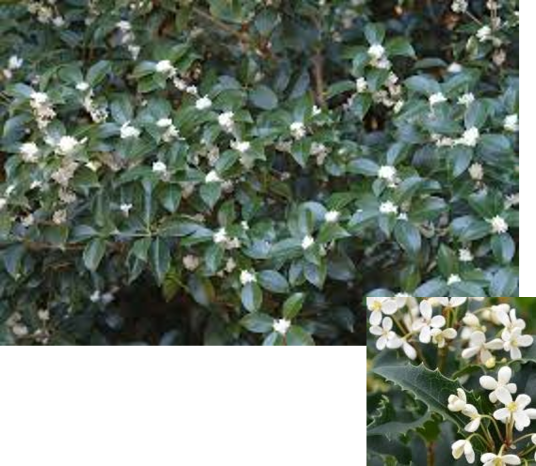 |
Search Website:
Please support our loyal Sponsors! Visit their website by clicking on their logos, or simply visit their businesses and thank them for their support of: Tillamook Beekeepers Association. |
